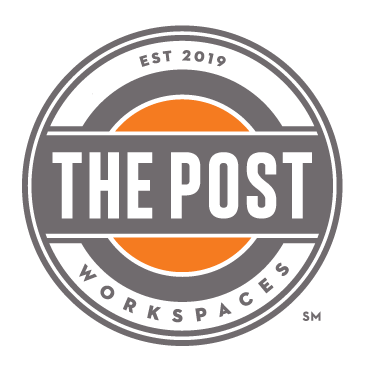
In the ever-evolving landscape of modern workplaces, the traditional 9-to-5 office setup has undergone a significant transformation.
The emergence of remote and hybrid work has given rise to diverse workspace options that cater to the changing needs of businesses, remote workers, solopreneurs, and other professionals.
You might hear the term “coworking” or “shared workspace” and think only of hot desks, free coffee, and comfy lounge spaces. But in reality, there’s a full spectrum in the flexible office world.
Here we’ll explore the two ends of the spectrum: coworking and serviced suites–how they differ, where they overlap, and how you can choose the best option to support your work.
Coworking vs. Serviced Suites
Flexible offices exist on a spectrum, with coworking on one side of it and serviced suites on other. The first is what many people are familiar with when thinking about shared workspaces—common areas, hot desks, and lots of “laptop professionals.”
Serviced suites, on the other hand, look more like your traditional office model, with one large company or organization occupying a dedicated space.
And while the two differ significantly, they both benefit from high-touch service and the upsides of sharing space with other professionals. Often lacking with traditional office leases, these shared workspaces offer key benefits like flexibility, economies of scale, hospitality-driven management, and community.
Here’s a rundown of each option so you can choose the best one for you.
The Coworking Experience

The coworking model prioritizes flexible work solutions that are typically used by solopreneurs, remote workers, freelancers, or small teams.
Coworking spaces foster collaboration and community through events and professional networking opportunities on top of providing cost-effective access to professional workspaces and tools.
Coworking memberships offer amenities like:
- Common lounge or kitchen areas
- Event or flex space for events and gatherings
- Free coffee and tea
- Printing, scanning, and photocopying facilities
- On-demand meeting rooms
- High-speed internet
Within a coworking space, professionals can opt for open coworking hot desks or select something more permanent with a dedicated desk or private office.
Many coworking spaces, like The Post, often offer part-time private offices for those who need a space to work on an on-demand basis rather than five days a week.
Coworking spaces are typically the best option for solo professionals or smaller teams of up to five people who want to build community, access amenities and support, and separate their work from home life.
Serviced Suites: A Different Approach

On the other end of the flexible office spectrum are serviced suites. This model offers turnkey offices managed by a flexible or coworking space operator.
Serviced suites typically appeal to larger teams, companies, and organizations that want privacy and autonomy in a dedicated workspace. In this way, they’re similar to traditional office leases that provide an entire self-contained office.
However, serviced suites differ in a few key ways:
- Flexibility: Traditional office leases typically come with long-term, inflexible leases and commitments. But serviced suites offer flexible terms that allow you to scale up or down as your business changes. The flexibility means you’re paying for what you need when you need it—not more.
- Community: Though you have privacy within your dedicated serviced suite, you’re still a member of the coworking space! So, you have access to communal areas as well as events and initiatives that foster community and collaboration. This all creates many unique coworking community benefits for professionals of all kinds.
- Service: It’s in the name—serviced suites. They offer a higher level of service and support than most traditional office leases. This includes reception services, virtual office services, mail and package delivery, IT support, and more.
- Simplicity: Because serviced suites offer turnkey solutions, you don’t need to worry about all the details of purchasing furniture, fixtures, or hardware. They’re outfitted with high-quality furnishings that allow you to jump in and start using the space very quickly.
For large teams and organizations, serviced suites might just be the best of both worlds—access to quality, private space while still taking advantage of everything the coworking model has to offer: community, flexibility, and service.
Coworking and serviced suites sit at either end of the flexible office spectrum. And while they differ significantly, they’re built on the same concept: sharing space to optimize community and efficiency. Knowing the difference between the two will help you make the best decision for your business.
If you want to look at either coworking or serviced suite options for your team or business, CONTACT US or BOOK A TOUR today to see what The Post is all about.

